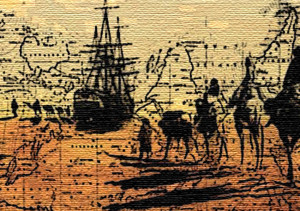Attempts to create a ‘postcolonial sociology’ are likely to fail to the extent that it remains purely academic and without an active political commitment underpinning the endeavour.
The scholars who have been most associated with understandings of the postcolonial – such as Edward Said, Gayatri Spivak, Homi Bhabha in the Humanities, Ranajit Guha, Dipesh Chakrabarty, Partha Chatterjee in subaltern history and historiography, or, tangentially, Anibal Quijano and Maria Lugones in Latin American decoloniality – have rarely sought simply to identify a new field or paradigm within academic knowledge or theorising.
They have grappled with analytical problems and systematic prejudices within the disciplinary forms of knowledge production and sought to work through these problems and identify possible solutions for more adequate ways forward. There is a rigour to their scholarship and a concern with maintaining the standards of the academic enterprise even as they contest claims, including claims of adequacy, within the larger field.
However, they also recognise that the academic production of knowledge is simply one site within a broader struggle for justice and it is struggles for justice that animate the project. There is an analogy with feminism and gender studies; feminism as a social movement animates gender studies, and, in the absence of that activist commitment, gender studies would be nothing more than a sub-field of sociology.
 Postcolonial sociology, then, is a sociology actively committed to a different world. It is a sociology that recognises the legacy of the colonial past in the present. And it is a sociology that seeks to identify possible futures that move us beyond the present through an address of contemporary inequalities that are themselves recognised as manifestations of longer-standing historical injustices of dispossession, genocide, colonialism, appropriation, and enslavement.
Postcolonial sociology, then, is a sociology actively committed to a different world. It is a sociology that recognises the legacy of the colonial past in the present. And it is a sociology that seeks to identify possible futures that move us beyond the present through an address of contemporary inequalities that are themselves recognised as manifestations of longer-standing historical injustices of dispossession, genocide, colonialism, appropriation, and enslavement.
Podcast
Bhambra, Gurminder K. 2020. What is postcolonial social science? Social Science Bites
Further Reading:
Bhambra, Gurminder K. 2014. Connected Sociologies. Bloomsbury Academic (open access free version)
Desai, Manali 2018. ‘Postcolonial Sociology and the Continuing Problem of Bifurcation’ Comparative and Historical Sociology
Submitted by Gurminder K Bhambra
7 thoughts on “Zapatismo”